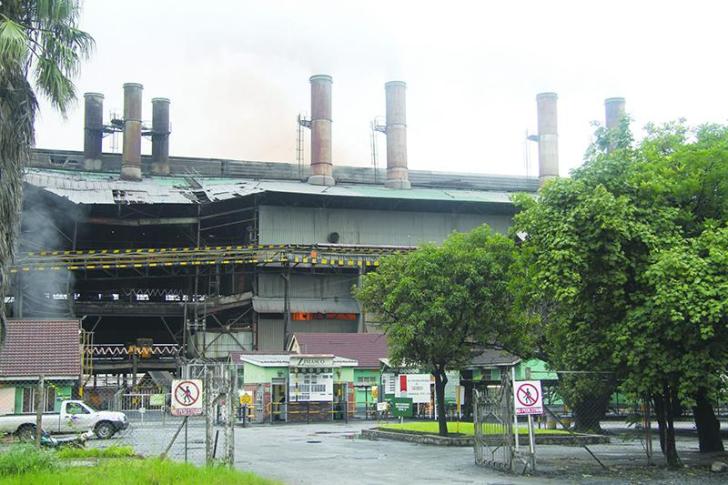News / Local
Judge faces serious allegations of attempting to defraud Zimasco
28 Mar 2025 at 12:28hrs | Views

Zimbabwe Alloys and Smelting Company (ZIMASCO) has formally lodged a complaint with the Judicial Services Commission (JSC) against High Court Judge Joel Mambara, alleging judicial misconduct in a case involving control of the chromite mining giant.
In a letter dated March 21, ZIMASCO CEO John Musekiwa accused Justice Mambara of issuing an irregular corporate rescue order that allegedly sought to benefit Kwekwe-based businessman Shepard Tundiya and his associate Denny Marandure. The two, through their company Avim Investments, are reportedly attempting to take over ZIMASCO's operations and financial accounts.
At the center of the controversy is an initial court order that failed to properly identify ZIMASCO as a party to the proceedings. The company claims the judge later made an "improper correction" to the order without their knowledge or participation in the legal process.
ZIMASCO's complaint further alleges that the case was processed with "unprecedented speed," with the filing and issuance of the court order completed within just three hours. This, they argue, raises serious concerns about due process and the integrity of judicial proceedings.
"The Honorable Judge could not lawfully amend his own order without involving the affected parties," Musekiwa wrote in the official complaint.
He further stated:
"The extraordinary rapidity of these proceedings, combined with the failure to ensure proper service, suggests more than mere oversight – it indicates active participation in a fraudulent scheme."
The mining firm also implicated attorneys Valentine Kwande and Wilson Manase in the alleged scheme, describing their involvement as part of an attempted "financial raid" on ZIMASCO's assets.
Musekiwa's letter concluded with a damning assertion:
"There can be only one explanation for these judicial actions. Justice Mambara appears to have been complicit in a coordinated effort to unlawfully seize control of ZIMASCO's financial resources and operations through fraudulent court orders."
As the case unfolds, the JSC is expected to review the allegations and determine whether disciplinary action or further legal proceedings are warranted.
In a letter dated March 21, ZIMASCO CEO John Musekiwa accused Justice Mambara of issuing an irregular corporate rescue order that allegedly sought to benefit Kwekwe-based businessman Shepard Tundiya and his associate Denny Marandure. The two, through their company Avim Investments, are reportedly attempting to take over ZIMASCO's operations and financial accounts.
At the center of the controversy is an initial court order that failed to properly identify ZIMASCO as a party to the proceedings. The company claims the judge later made an "improper correction" to the order without their knowledge or participation in the legal process.
ZIMASCO's complaint further alleges that the case was processed with "unprecedented speed," with the filing and issuance of the court order completed within just three hours. This, they argue, raises serious concerns about due process and the integrity of judicial proceedings.
"The Honorable Judge could not lawfully amend his own order without involving the affected parties," Musekiwa wrote in the official complaint.
He further stated:
"The extraordinary rapidity of these proceedings, combined with the failure to ensure proper service, suggests more than mere oversight – it indicates active participation in a fraudulent scheme."
The mining firm also implicated attorneys Valentine Kwande and Wilson Manase in the alleged scheme, describing their involvement as part of an attempted "financial raid" on ZIMASCO's assets.
Musekiwa's letter concluded with a damning assertion:
"There can be only one explanation for these judicial actions. Justice Mambara appears to have been complicit in a coordinated effort to unlawfully seize control of ZIMASCO's financial resources and operations through fraudulent court orders."
As the case unfolds, the JSC is expected to review the allegations and determine whether disciplinary action or further legal proceedings are warranted.
Source - online

























